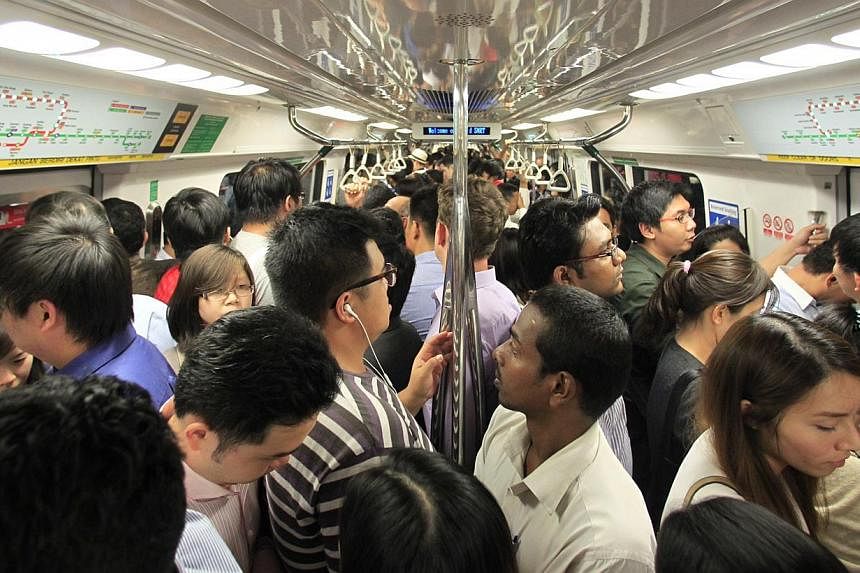Companies based near MRT stations have backed a government move to provide grants promoting flexible travel arrangements.
The Land Transport Authority's (LTA's) Travel Smart Network initiative, launched on Wednesday, hopes to ease the public transport crush during morning peak hours by helping employers bear the costs of developing flexible work plans.
In a trial starting in 2012, feedback from 6,000 people in 12 organisations showed 20 per cent changed their work arrangements and reduced their peak-hour travel by 12 per cent.
The LTA has approached some companies near MRT stations with more than 200 employees - the "critical mass" required for flexible travel schemes to work.
Firms like DBS and Standard Chartered Bank have shown interest, saying the scheme complements their flexi-work policies.
Senior Minister of State for Transport Josephine Teo has said the Government will be "very happy" to support smaller companies - those with fewer than 200 staff members - that want to participate.
Mr Kurt Wee, president of the Association of Small and Medium Enterprises, said that with 70 per cent of Singapore's workforce employed in SMEs, the impact on public transport congestion will be "very large".
Companies with at least 40 employees should be allowed to benefit from the scheme, he added. This figure, he said, is sizeable enough to allow for flexibility. But firms with fewer than 20 employees have less capacity for flexibility, and as such may need to keep to more regular hours in line with client schedules or banking hours.
The scheme allows each firm to apply to the LTA for grants of up to $510,000 over three years.
These comprise a $30,000 voucher to engage approved consultants to develop travel demand management plans, and grants of up to $160,000 a year for three years to co-fund initiatives such as bicycle parking and morning programmes for early birds.
Mr Low Cheong Kee, managing director of hardware store HomeFix, which employs 100 people at its Tai Seng HQ, said the grant will supplement its flexi-work scheme, which allows employees to come in earlier or later as long as they clock the required hours.
Ms Elaine Brick, associate director for transportation at consultancy Aecom, which conducted the LTA's trial, said there has been better staff morale, productivity and work-life balance as well as reduced journey times.
But a "mindset shift" is required to tackle barriers, such as fears of negative perceptions from other colleagues. Ms Brick said: "There must be a certain level of trust... and a shift in focus to quality of work, rather than quantity of work delivered."
This was reflected in measures adopted by companies in the trial.
At KPMG, the 13 per cent of eligible staff on flexi-hours must inform clients and colleagues of their whereabouts through voicemail or out-of-office messages.
Law firm Rajah & Tann has a support system allowing supervisors and colleagues to provide back-up when needed. At Citibank, 70 per cent of staff start work before 8.30am or after 9am.
And at the Public Service Division, senior management "lead by example". Assistant executive Agnes Phang, 57, said supervisors have been supportive of her work arrangement, adding: "I'm able to spend more quality time with my mother in the evening."


